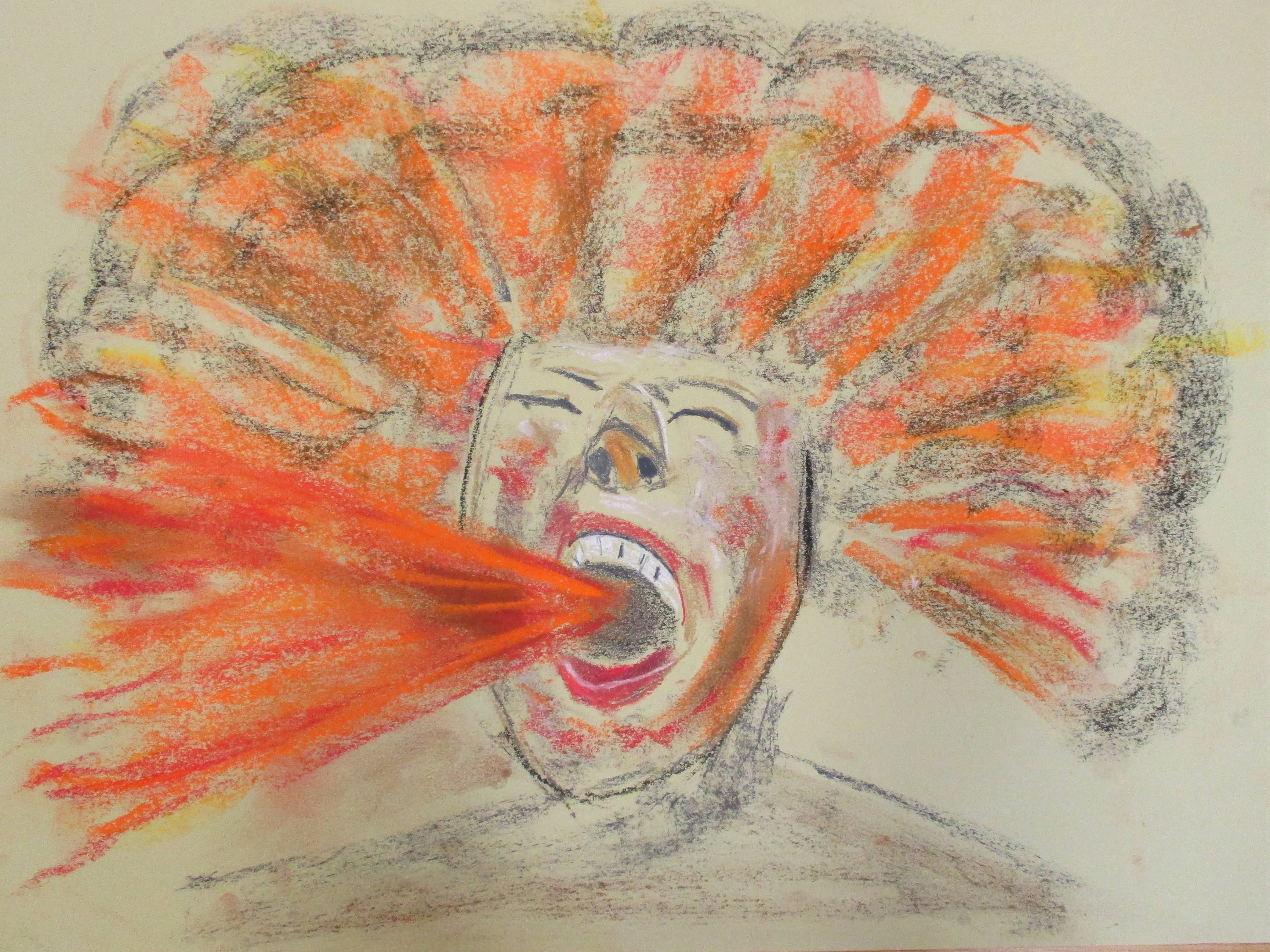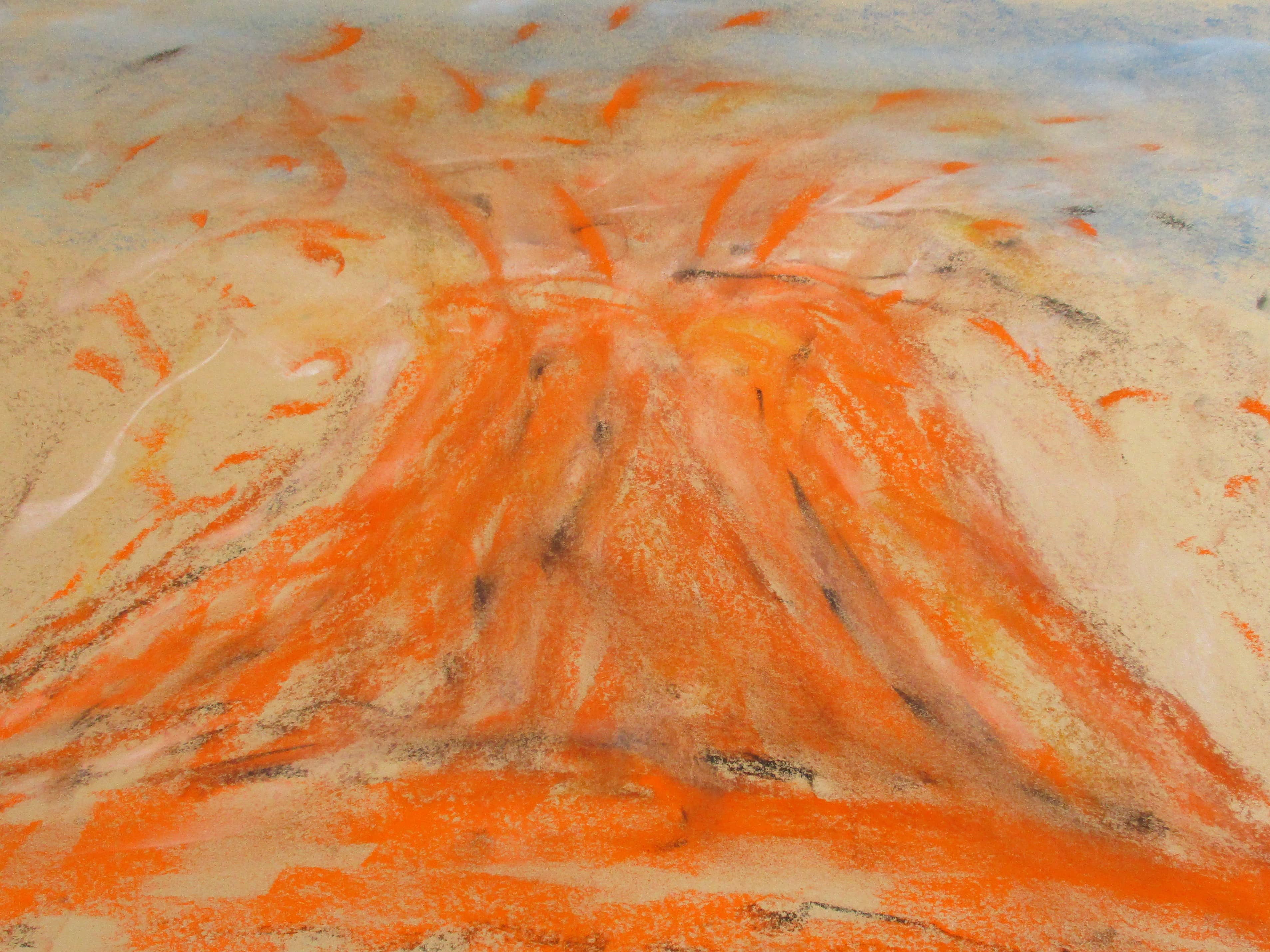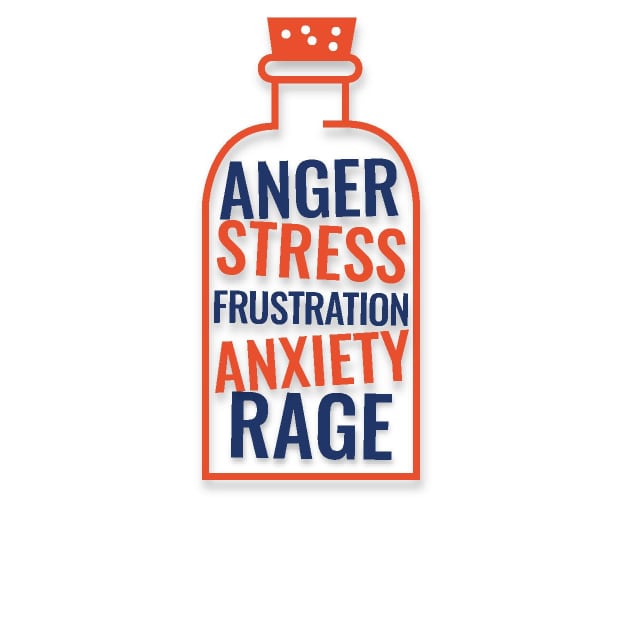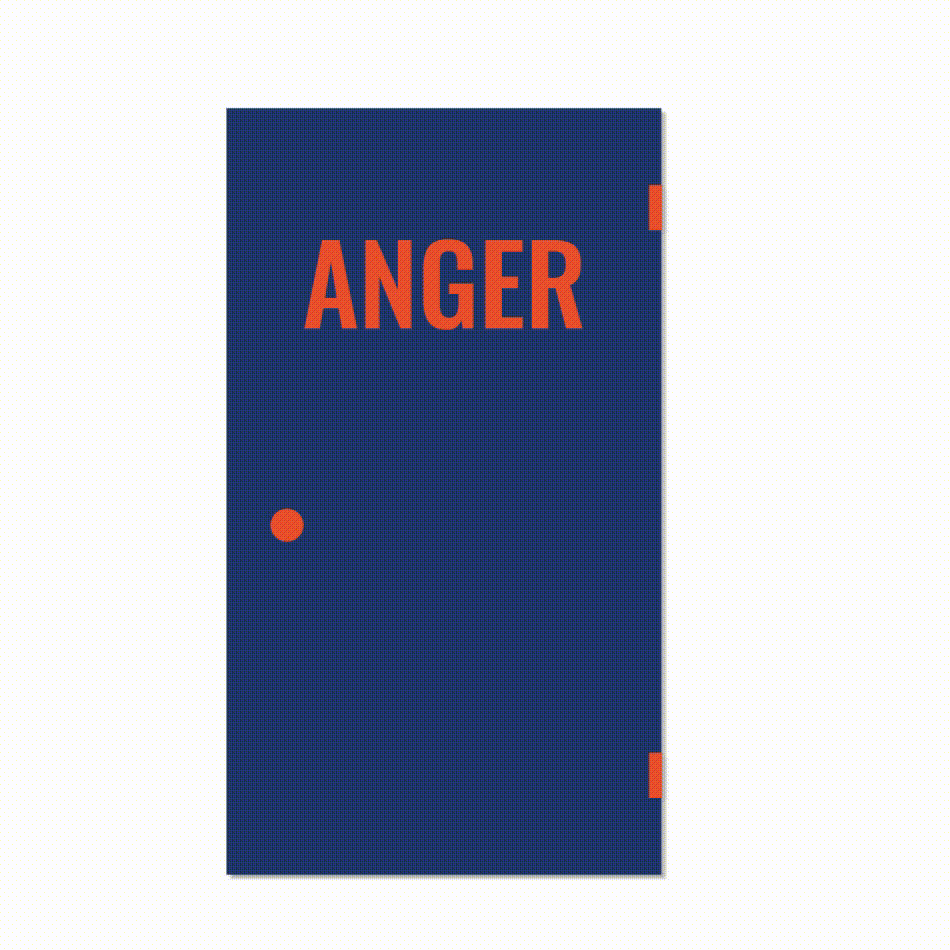Contact us
-
1
-
2
-
3
-
4
-
5
-
6
It will take ~10 minutes to work through Section One
Anger: What is it?
Do you feel quick-tempered, short fused or easily irritated? Anger is an important emotion and is neither good nor bad.



These images were created by veterans during art therapy as part of their recovery journey.
They've been shared to raise awareness and to help others understand.
Anger is an important emotion. Anger is neither good nor bad.
It is a physical and emotional response that motivates us to act when under threat. The trick is to manage our response to anger in a positive and controlled way.
Anger is not the same as aggression. Anger is an emotion, aggression is an action.
Anger can be an energy used to motivate as a force for good. Harnessing this energy can lead to campaigning for change and righting wrongs and being clear about what we need.
Anger can happen in the moment, activated by a trigger or thought.
Anger can come to the surface years later, as its roots are linked to unresolved events in the past.
When is anger a problem?

Anger becomes a problem when we ignore it, bury it, or respond impulsively to it. Problems with understanding and responding to anger are as common as depression and anxiety.
Many people don't get help because they don't recognise that how they respond to their anger is a problem. Often friends or family might notice the change before you do.
Anger can be a problem when:
- You frequently overreact.
- You're angry a lot.
- It lasts a long time, and you feel upset for a long time afterwards.
- You feel that your anger is uncontrollable.
Why might veterans struggle with anger?
There are several reasons why veterans in particular might struggle with anger. Here are just a few.
Military training means being very alert to hidden dangers, along with the ability to harness anger and aggression very quickly in order to fight the enemy and survive. This is useful in the military and often necessary when on active duty, but not so helpful in civilian life.
Serving in the military can also lead to more exposure to highly stressful events and traumatic experiences compared to most civilians. This can lead to the 'fight/flight/freeze' system being activated over and over again - perhaps predominantly the fight system. These experiences may reduce our tolerance for different feelings, meaning we are more easily triggered to anger.
Some veterans may struggle with leaving the military and re-joining 'civvy street'. The challenges this can bring and the perceived lack of support and understanding from the MOD and/or civilian services can lead to angry feelings.
Life before the military may have been difficult for some veterans. Certain early life experiences such as childhood neglect or abuse, and bullying through school years may have led to increased angry feelings even before joining the military

Before moving on, take a moment to consider your relationship with anger
- Do you accept that anger is different from aggression?
- What experiences in your life have angered you?
- What's behind your anger?
Additional Resources
Was this page useful?
This information was published on 30 October 2020.
Is there someone I can call and talk to?
Our Helpline is open 24/7, please do not hesitate to call if you need someone to talk to or any guidance.
Combat Stress 24/7 Free Helpline 0800 138 1619.
If you require more urgent help, either yourself or a member of your family feel unsafe, please contact your GP or telephone 111.

